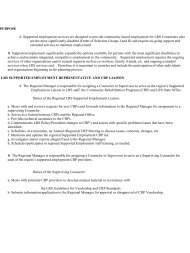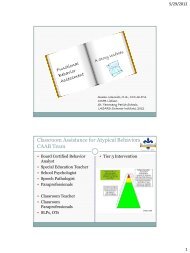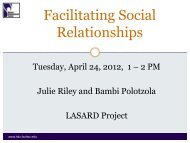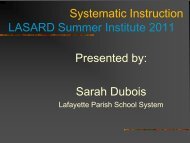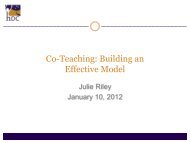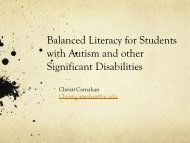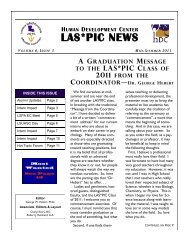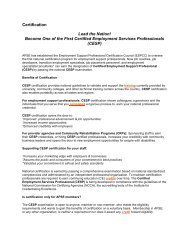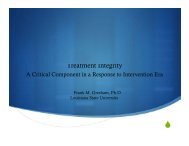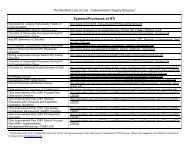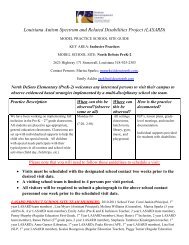louisiana school psychology - LSUHSC Human Development Center
louisiana school psychology - LSUHSC Human Development Center
louisiana school psychology - LSUHSC Human Development Center
You also want an ePaper? Increase the reach of your titles
YUMPU automatically turns print PDFs into web optimized ePapers that Google loves.
system/procedure to alert their individual supervisor of an urgent situation<br />
that would require an immediate response. Professional supervisors<br />
recognize that interns responding to crisis situations in <strong>school</strong>s may need<br />
direct supervision and are fully prepared and willing to provide such support<br />
consistent with a prearranged method of emergency contact. It is<br />
understood that such support would typically be by phone, rather than<br />
onsite, and thus other community emergency resources would be utilized if<br />
the circumstances exceeded the capacity of the <strong>school</strong> to respond<br />
appropriately to the student in crisis.<br />
8. Integration of Ethics and Cultural Competence Training: Embedded in<br />
LAS*PIC’s experiential training and through explicit instruction, interns<br />
become competent in decision making models that rely upon ethical<br />
practices and cultural sensitivity. Interns practice consultation, assessment<br />
and intervention under supervision that supports decision making with a<br />
mature understanding of the diversity and multi-cultural needs of students<br />
and families in <strong>school</strong> settings, consistent with “Guidelines on Multicultural<br />
Education, Training, Research, Practice and Organizational Change for<br />
Psychologist” APA, 2003. Didactic training is enhanced by situation specific<br />
supervision of learning experiences that challenge the intern’s practical<br />
application of culture-centered responsiveness to issues involving students<br />
that are racially, culturally and linguistically different, in public <strong>school</strong>s and<br />
other educational settings.<br />
9. Collaborative and Evidence-based Practice: We recognize families and<br />
students as essential participants in the collaborative process of educational<br />
assessment and intervention. Interns are taught that it is incumbent upon the<br />
<strong>school</strong> psychologist to inform and educate stakeholders regarding assessments<br />
and interventions proposed as an expectation of informed consent.<br />
Additionally, interns are trained to evaluate intervention methodologies to<br />
select and utilize the most appropriate empirically-supported interventions<br />
indicated, a practice consistent with the “Report of the 2005 Presidential Task<br />
Force on Evidence-Based Practice” APA, 2005. Interns are prepared through<br />
didactic and experiential training to respond to the demands of best practice,<br />
professional accountability in the workplace and in the event of legal<br />
challenges to professional judgment, through evidence-based practices.<br />
10 | P a g e




